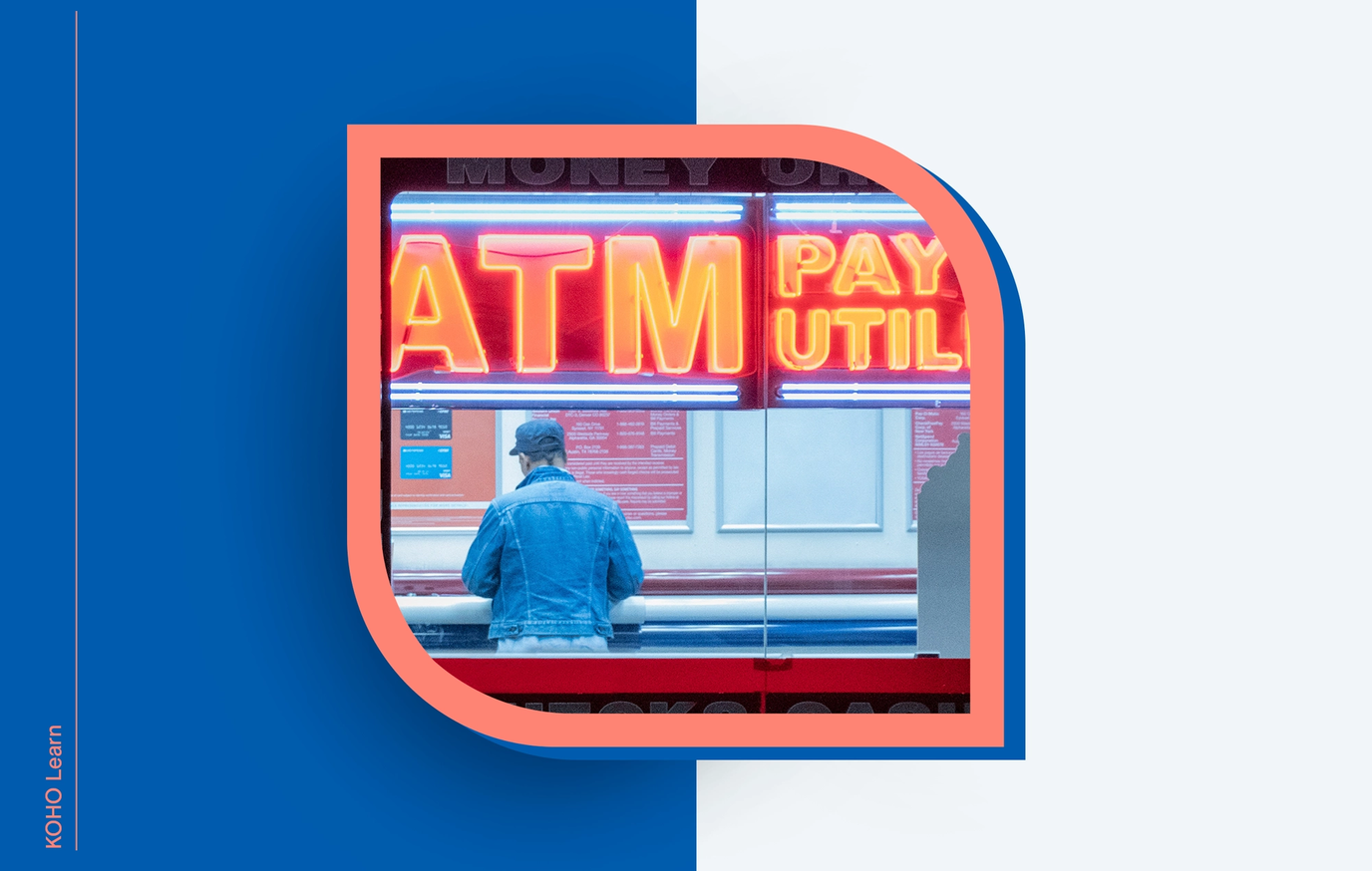
Rounding it up
Earned wage access (EWA) allows you to access your earned income at a time that’s right for you, not your employer.
You don’t have to pay interest on money you’ve earned just because you want to use it before your scheduled pay date.
For this reason, EWA is a better and safer alternative to overdrafts and payday loans.
EWA is also beneficial for employers, as it can boost employee performance and loyalty, as well as the business’ bottom line.
Earning money is empowering, but it can be frustrating when you have to wait to get paid. And for those of us who get paid monthly, bi-monthly, or semi-monthly, it can be especially challenging to stretch money out between pay periods.
Plus, even with the most diligent of budgets in place, emergencies arise. You could be tracking every cent you spend, but if you don’t have extra money in your paycheque or in your savings account, you may have to rely on loans and credit.
Sometimes, we need to get our hands on our own money now. For people particularly impacted by the effects of COVID-19, having access to liquid cash has taken on an even greater significance. Consider frontline workers who may have little to no time to perform daily banking tasks. Coupled with the lack of availability of brick-and-mortar institutions whose hours of operation were limited (and still may be), many people literally could not convert their paycheques to cash. Some couldn’t even deposit them. As a result, there were those who had to rely on credit cards just to be able to buy food for their families. Then there were overdraft charges to consider when they couldn’t get cheques deposited in time to pay bills.
Thankfully, there are payroll solutions like earned wage access that are available regardless of whether employers want to participate. This traditional payroll alternative has helped thousands of people get back on their feet and back on the path to financial wellness.
What is earned wage access?
Earned wage access (EWA) is the ability for an employee to get access to the money they’ve earned before their regularly scheduled pay date.
Sometimes called on-demand pay, wages on-demand, or daily benefit pay, EWA has many benefits for employees and employers alike–benefits that are especially in the wake of the COVID-19 pandemic, which left many people struggling to make ends meet.
Fortunately the world is opening up and people are getting back to work. However, their savings may have been depleted and their debts high, leaving many to live paycheque to paycheque. While being back at work is a blessing, it may not be enough. In fact, many Canadians are still stressed over money, and these strains can filter into the workplace.
Employees who are stuck in cycles of debt can negatively impact company productivity. It is easy to become distracted by money stress and lose focus when you’re thinking about how you’re going to buy groceries to feed your family or where you’re going to find money to pay your car loan.
Without money woes, however, employees are more likely to experience financial peace of mind. This, in turn, creates greater satisfaction in the workplace which can lead to better bottom lines for businesses. Think about it, don’t you work better when you feel better?
In the post-pandemic economy, more employers and employees are adopting EWA. With this payroll solution on the rise, it’s also important to debunk some common misconceptions for both parties.
SPEND SMARTER. SAVE FASTER
What earned wage access is not:
1. EWA is not a loan
EWA is a payday loan alternative, but it’s definitely not a loan. That’s because employees only have access to the pay they earned, but only after they’ve worked for it. They’re simply getting it earlier than the “normal” pay day. Plus, there aren’t any tax implications to EWA for employees or employers — simple, right?
EWA has helped many avoid taking out payday loans because they can get their money when they need it. This can be incredibly helpful when emergency expenditures arise and waiting for your next paycheque means having to borrow money to cover unexpected expenses. While payday loans may seem like an appealing option, they can be a troublesome solution because you’d be borrowing against money you haven’t yet earned. Then, that money is then deducted from your next paycheque as the loan repayment. But what happens if your next paycheque is too low? You end up extending the loan by borrowing more money. It’s a cycle that can be hard to break out of.
2. EWA is not a credit card
When enrolled in EWA, you will not pay interest on the money you access before your pay date. This is because you are not borrowing your own money, you are just using it before your employer’s scheduled date of pay.
In fact, EWA can help improve budgeting, especially for big-ticket items like rent, mortgages, and car payments. Knowing your spending power in real-time is a huge advantage when planning out your monthly bills—you’ll know exactly what you have to spend, save, and use on any given day. This will be especially helpful when birthdays, weddings, and even holidays are on the horizon. You can get your bills paid on time and then save efficiently for expenses that are not part of your monthly routine.
3. EWA does not perpetuate debt cycles
In a perfect world, we can tell creditors when we want to pay them back without incurring interest. We all know, however, this is not the case.
Have a bill due on the tenth of the month but don’t get paid until the fifteenth? Because you have access to your own money when you need it, EWA can help you avoid late fees and interest charges by giving you your money in advance of when you need to pay your bills!
SPEND SMARTER. SAVE FASTER
4. EWA does not discourage financial wellness
Getting ahead of interest charges and late fees is an important first step toward financial wellness but it is not the only way EWA can help.
Remember, practicing financial wellness means you are:
Spending within your means
Prepared for emergencies
Able to access knowledge and tools to help you make informed decisions
Planning for your future
Knowing when and how much money you can use is a huge benefit to using EWA. When you’re aware of what you owe and what you have leftover, you are better equipped to plan for daily, monthly, yearly, and even your retirement goals.
Not only that, but many feel motivated to work even more and take less time off because they can see the results of their labor almost instantly!
In conjunction with responsible spending and savings, EWA empowers you to get control of your budget so you can maximize your earning (and spending) power.

About the author
Jennifer is a freelance writer and editor who also teaches high school English in her hometown. She enjoys learning, laughing, and being a mom to her two beautiful daughters ... and her rescue dogs.
Read more about this author